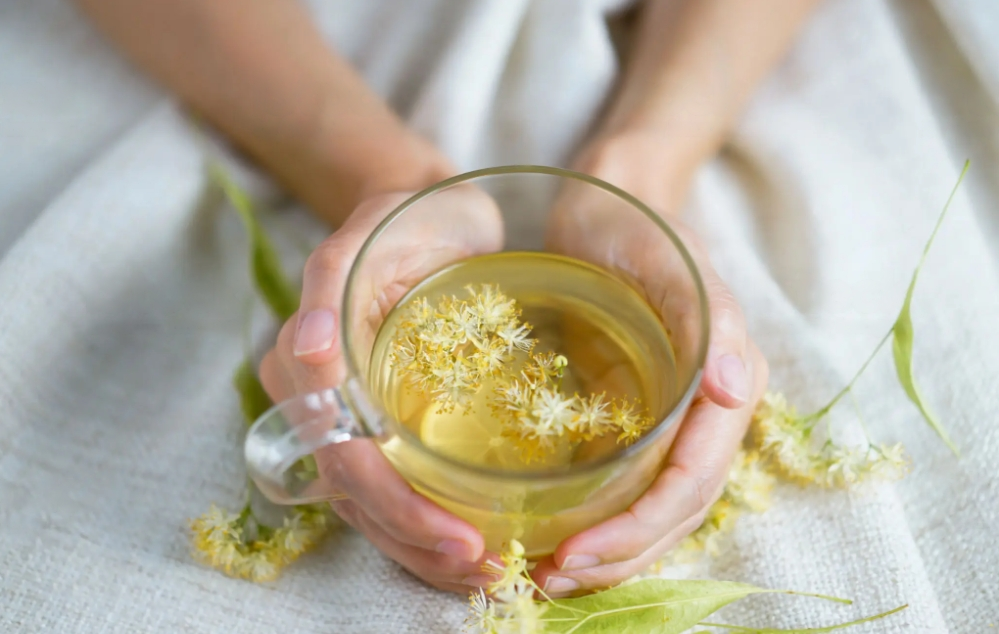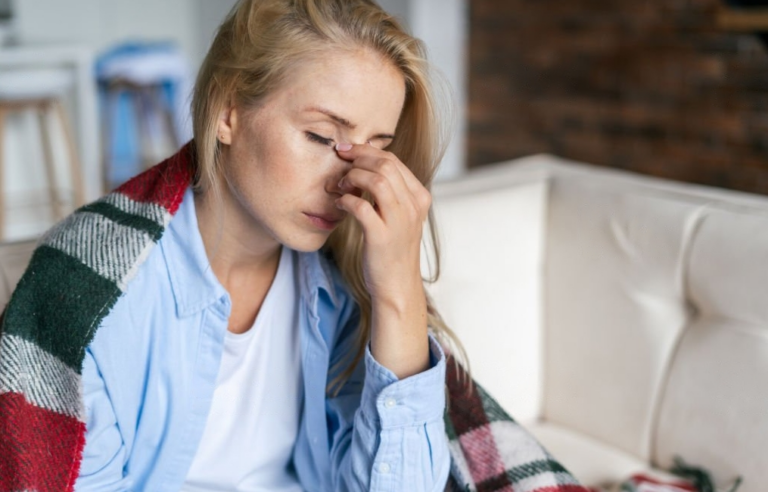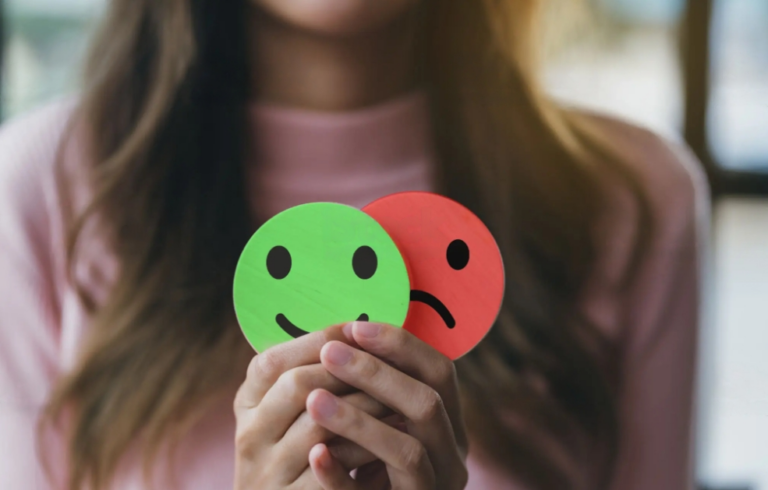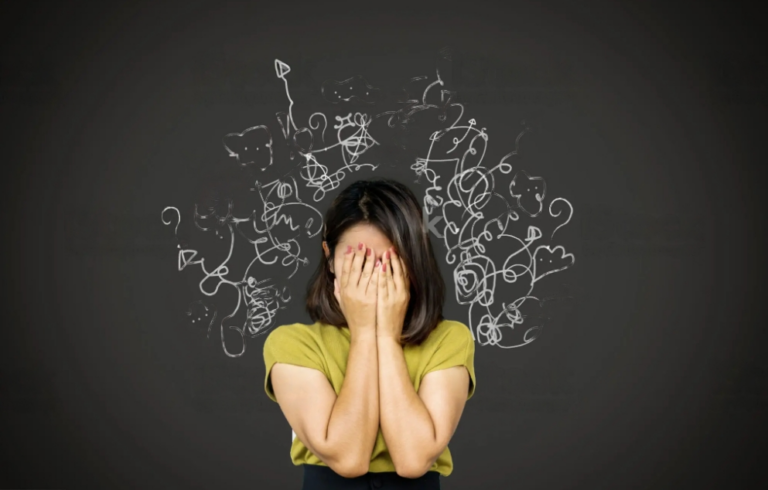Finding Calm: Natural Remedies for Anxiety to Help You Relax and De-stress
Finding Calm: Natural Remedies for Anxiety to Help You Relax and De-stress
What is Anxiety?
Anxiety is a common and natural human emotion that we all experience at some point. It responds to perceived threats or stressful situations, often accompanied by emotional, cognitive, and physical symptoms. Anxiety symptoms can manifest in various ways, such as excessive worry, restlessness, irritability, difficulty concentrating, and sleep disturbances. While occasional anxiety is a normal part of life, persistent and excessive anxiety may indicate the presence of an anxiety disorder.
Anxiety disorders are mental health conditions characterized by excessive and persistent anxiety and fear. They encompass a range of conditions, including generalized anxiety disorder (GAD), obsessive-compulsive disorder and social anxiety disorder. According to the American Psychiatric Association, anxiety disorders and panic attacks affect approximately 18% of the U.S. population, highlighting the significance of addressing this issue for overall mental health.
In recent years, there has been a growing interest in anxiety natural remedies and alternative therapies as individuals seek alternative, holistic approaches to managing their symptoms. Natural remedies can encompass various techniques and lifestyle changes to alleviate anxiety and promote well-being. These may include mindfulness meditation, exercise, deep breathing exercises, herbal supplements, and relaxation techniques.
Importance of natural remedies for anxiety
The importance of natural remedies for anxiety lies in their potential to provide individuals with practical tools to manage their symptoms. While professional help and evidence-based treatments are crucial for severe cases, many natural remedies can complement traditional approaches and be integrated into daily routines as self-care practices.
In addition, these remedies can empower individuals to take an active role in their mental health and provide a sense of control over their anxiety and depression symptoms.
Anxiety and anxiety disorders are significant concerns for mental health. Exploring natural remedies for anxiety can be a valuable addition to traditional treatments, offering individuals alternative methods to reduce anxiety and promote overall well-being. By incorporating natural remedies into our daily lives, we can enhance our ability to manage anxiety symptoms and cultivate a balanced and resilient mindset.
The Power of Herbs: Natural Remedies for Anxiety
Herbs and their Benefits for Anxiety
Anxiety symptoms can be overwhelming, impacting both our physical and mental well-being. While there are various approaches to reducing anxiety, natural treatments, including herbal remedies, have gained popularity for their potential benefits.
Herbs have long been used to alleviate anxious feelings and promote relaxation. Some herbs known for their calming properties include lavender, chamomile, and passionflower. Lavender is commonly used in aromatherapy to alleviate anxiety symptoms, promote better sleep, and induce a sense of calm. Chamomile, often consumed as a tea, has soothing effects that can help reduce anxiety and promote relaxation. Passionflower is another herb known for its anxiety-reducing properties and is frequently used to support a calm state of mind.
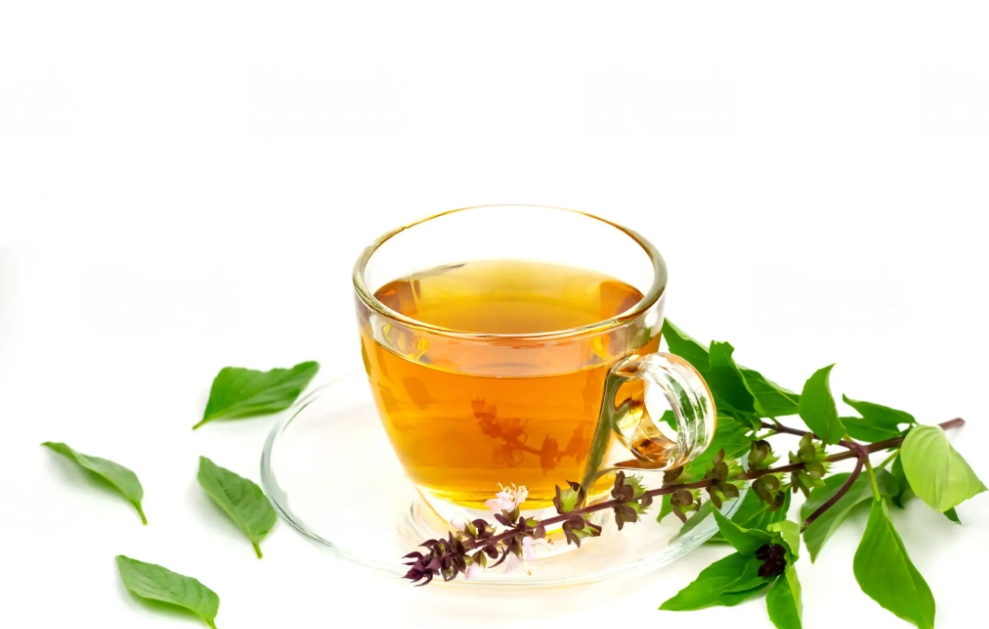
Herbal teas, in particular, have gained recognition as natural remedies for anxiety. They offer a convenient and enjoyable way to incorporate herbs into our daily routines. Sipping a cup of herbal tea, such as chamomile or lavender tea, can create a relaxing ritual that helps reduce anxiety and promotes a sense of tranquility.
One of the advantages of using herbal remedies for anxiety is their potential to provide relief without the side effects associated with some anti-anxiety medications. However, it’s important to note that natural treatments may not be suitable for everyone, and it’s advisable to consult with a healthcare professional before incorporating herbal remedies into your routine, especially if you have chronic anxiety or are taking other medications.
How to Use Herbs for Anxiety Relief
- Herbal Teas: Incorporate calming herbal teas such as chamomile, lavender, and lemon balm into your daily routine. Brew a cup of tea and savour its soothing effects.
- Aromatherapy: Utilize the aromas of lavender, bergamot, and ylang-ylang. Diffuse them in your home or workplace, or add a few drops to a warm bath for relaxation.
- Herbal Supplements: Consider incorporating herbal supplements like valerian root, passionflower, or ashwagandha into your routine. Consult a healthcare professional to determine the appropriate dosage and suitability for your needs.
Coping Strategies for Incorporating Herbs into Your Daily Routine
- Mindful Consumption: When using herbs for anxiety relief, approach them with mindfulness. Be present in the moment and appreciate the experience of engaging with the herb, whether it’s sipping herbal tea or inhaling the aroma of essential herbs.
- Ritualize Your Routine: Create a ritual around incorporating herbs into your daily routine. Set aside dedicated time for teas, aromatherapy, or herbal supplements. Make it a soothing and intentional practice.
- Combine with Other Coping Strategies: Herbs can complement other coping strategies for anxiety relief, such as deep breathing exercises, meditation, or journaling. Integrate herbs into your existing self-care practices for enhanced benefits.
- Seek Professional Guidance: If you have specific health conditions or are taking prescription medication, consult a healthcare professional before incorporating herbs into your routine. They can provide personalized guidance and ensure the herbs align with your health.
Herbs offer a natural approach to reducing anxiety and promoting overall well-being. Incorporating herbs like lavender, chamomile, and passionflower into our daily lives, whether through aromatherapy, teas, or other forms, can contribute to managing anxiety symptoms and fostering a sense of calm.
The Magic of Aromatherapy: Natural Remedies for Anxiety with Essential Oils
Panic disorder and anxiety can be debilitating conditions that significantly affect an individual’s daily life. While there are various methods for treating anxiety, incorporating essential oils into an anxiety treatment plan has gained recognition for its potential to ease anxiety and reduce stress.
Essential oils have the power to influence our emotions and overall well-being positively. When it comes to anxiety, certain oils have gained recognition for their anxiety-reducing properties. For example, lavender, with its gentle and soothing scent, is widely known for its ability to ease anxiety. Its calming effects can promote relaxation and tranquillity, making it a popular choice for anxiety management.
Bergamot essential oil, derived from the peel of citrus fruits, is renowned for its uplifting qualities. It can help alleviate anxious feelings and reduce stress levels. Additionally, bergamot essential oil has been observed to restore standard breathing patterns, often disrupted during anxiety episodes.
Ylang-ylang essential oil, with its sweet and floral aroma, is another valuable tool for anxiety relief. Its sedative effects can aid in managing stress and promoting a sense of calm. By using ylang-ylang essential oil, individuals may find it easier to manage their anxiety symptoms and restore emotional balance.
While these oils can be a beneficial addition to treat anxiety, it’s important to note that they work best when used in conjunction with other therapeutic approaches. Therefore, it’s advisable to consult with a healthcare professional or aromatherapist to determine the most appropriate essential oils and methods of application for your individual needs.
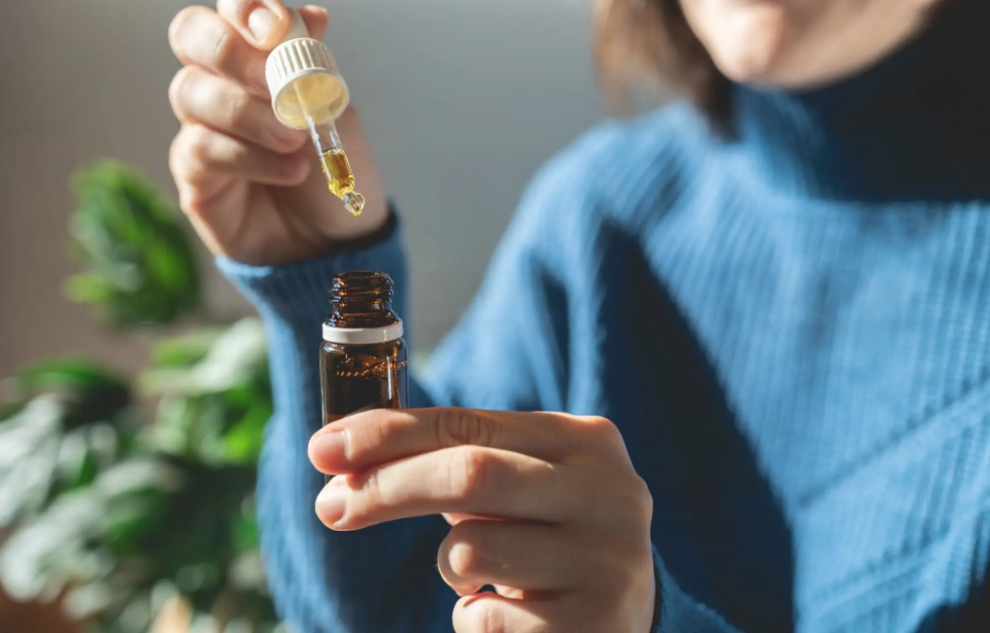
How to Use Essential Oils for Anxiety Relief
- Inhalation: Add a few drops of essential oil, such as lavender, chamomile, or bergamot, to a diffuser or a tissue and inhale deeply. This method allows the scent to reach your olfactory system, promoting relaxation and reducing anxiety symptoms.
- Topical Application: Dilute essential oils with carrier oil, such as jojoba or coconut oil, and apply the mixture to pulse points, temples, or the back of your neck. Gently massage the oil into your skin to experience the soothing effects.
Coping Strategies for Incorporating Essential Oils into Your Daily Routine
- Morning Ritual: Begin your day by incorporating oils into your morning routine. Add a few drops to your shower or bath, or diffuse them in your bedroom to create a serene ambiance.
- Meditation and Relaxation: Enhance your meditation or relaxation practices by diffusing oils. The calming aroma can help center your mind and promote a deeper state of relaxation.
- Portable Aromatherapy: Carry a small vial of your preferred essential oil blend throughout the day. When anxiety strikes, inhale the scent directly from the vial or apply a drop to your wrist for instant relief.
- Create a Calming Environment: Using oils, transform your living spaces into tranquil sanctuaries. Diffuse calming scents in your office, living room, or bedroom to foster a sense of calm and relaxation.
Moving Your Body: Natural Remedies for Anxiety with Exercise
Exercise and its Benefits for Anxiety
Exercise is crucial in promoting physical and mental well-being, making it an effective strategy for managing anxiety. Regular physical activity enhances physical health and profoundly impacts mental health by reducing stress, alleviating physical and mental symptoms, and boosting mood.
Regarding anxiety, exercise offers a holistic approach that targets both the body and mind. For example, physical activity helps combat chronic stress, significantly contributing to anxiety.
In addition, exercise stimulates the release of endorphins, known as the “feel-good” hormones, which can improve mood and reduce stress hormone levels in the body.
Various forms of exercise are particularly beneficial for anxiety relief. Focusing on deep breathing and gentle movements, yoga promotes relaxation and helps calm the nervous system. Tai chi, a mind-body practice characterized by slow, flowing movements, has reduced anxiety symptoms and improved sleep quality.
Incorporating physical activity into your daily routine helps manage anxiety and improves overall physical health. It is essential to find activities you enjoy and feel comfortable with, as this increases the likelihood of adherence. Remember, even small amounts of exercise can make a difference, so start with manageable goals and gradually increase intensity and duration.
Incorporating Exercise into Your Daily Routine
- Schedule It: Treat exercise as an essential appointment in your daily calendar. Set aside dedicated time for physical activity, whether in the morning, during lunch breaks, or in the evening.
- Choose Activities You Enjoy: Engage in activities that you find enjoyable and fulfilling. It could be going for a brisk walk, practicing yoga, dancing, cycling, or participating in team sports. Find what resonates with you and brings a sense of joy.
- Start Small and Gradually Increase: If you’re new to exercise or have anxiety, start with manageable goals and gradually increase the intensity or duration of your workouts. Again, consistency and gradual progress are key.
Coping Strategies for Using Exercise to Overcome Anxiety
- Mind-Body Connection: Pay attention to the physical sensations and mental clarity that exercise provides. Acknowledge the release of endorphins, the increased heart rate, and the energy coursing through your body. Embrace the mind-body connection to relieve anxiety symptoms.
- Focus on the Present Moment: During the exercise, redirect your attention to the present moment. For example, concentrate on the movement of your body, the rhythm of your breath, and the sensations of your muscles working. This mindful approach can help quiet anxious thoughts.
- Outdoor Exercise: Incorporating outdoor activities can have additional benefits. Exposure to nature and sunlight can boost mood, reduce blood pressure, and improve brain health, further relieving anxiety.
- Social Support: Consider exercising with a friend or joining group fitness classes. The social aspect can provide motivation and a sense of community and alleviate isolation or anxiety.
Always consult a healthcare professional before starting a new exercise regimen, especially if you have any underlying health conditions. They can provide personalized recommendations and ensure that you engage in activities suitable to your needs and capabilities.
Feeding Your Body: Natural Remedies for Anxiety with Diet
The link between diet and anxiety is gaining recognition as researchers study the impact of nutrition on mental health. A balanced diet with essential nutrients can greatly improve anxiety and overall well-being. While anti-anxiety drugs and medications are available, incorporating dietary supplements and natural remedies into a healthy diet can effectively combat anxiety.
A healthy diet includes foods that provide the nutrients needed for optimal brain function and emotional well-being. Some food choices are especially helpful in reducing anxiety symptoms. Fatty fish, like salmon and sardines, are high in omega-3 fatty acids, associated with lower anxiety and improved mood.
Whole grains, such as quinoa and brown rice, are complex carbs that stabilize blood sugar levels and provide steady energy, promoting a calmer mind. Dark chocolate, in moderation, contains antioxidants and can boost the production of natural mood-enhancing endorphins.
However, it’s important to be mindful of certain dietary factors that can worsen anxiety. For example, consuming excessive amounts of caffeine from coffee, tea, and some soft drinks can increase nervousness and trigger anxiety attacks in susceptible individuals.
Limiting caffeine intake or choosing decaffeinated options can help manage anxiety symptoms. Additionally, magnesium supplements or magnesium-rich foods like spinach and almonds may be beneficial, as magnesium helps regulate stress responses and promotes relaxation.
Incorporating Anxiety-Reducing Foods into Your Diet:
- Amino Acid-Rich Foods: Incorporate foods rich in amino acids like tryptophan and tyrosine. These include turkey, eggs, almonds, and legumes. Amino acids are the building blocks for neurotransmitters that regulate mood, helping to improve anxiety symptoms.
- Omega-3 Fatty Acids: Include foods rich in omega-3 fatty acids, such as fatty fish (salmon, mackerel), chia seeds, flaxseeds, and walnuts. Omega-3 fatty acids have been shown to reduce inflammation and help manage stress.
- Complex Carbohydrates: Opt for complex carbohydrates like whole grains, fruits, and vegetables. They provide a steady release of energy, promoting stable blood sugar levels and preventing spikes that can contribute to anxiety.
Coping Strategies for Maintaining a Healthy Diet for Anxiety Relief
- Mindful Eating: Practice mindful eating by paying attention to your food’s colors, flavors, and textures. Slow down and savor each bite, allowing yourself to engage with the nourishment you provide your body entirely.
- Meal Planning and Preparation: Plan your meals ahead of time to ensure a balanced and nutritious diet. Prepare meals at home using fresh ingredients, allowing you to control the quality and content of your meals.
- Hydration: Stay hydrated by drinking adequate water throughout the day. Dehydration can exacerbate anxiety symptoms, so aim for at least 8 cups of water daily.
- Seek Professional Guidance: Consult a healthcare professional or a registered dietitian to discuss your specific dietary needs and to ensure that your diet aligns with your overall health goals.
While dietary changes can support anxiety management, it is essential to remember that each person’s response may vary. Therefore, it is advisable to consult with a healthcare professional before making significant changes to your diet or considering dietary supplements, especially if you are taking other medications. They can provide personalized advice based on your needs and guide you towards a balanced approach to address anxiety through nutrition.
The Power of Touch: Natural Remedies for Anxiety with Massage and Acupuncture
Massage and acupuncture are natural treatments that can help individuals with anxiety. While talk therapy is often recommended as a primary treatment, these complementary therapies provide additional support in reducing anxiety symptoms and promoting overall well-being.
Massage therapy involves manipulating soft tissues in the body, like muscles and tendons, to promote relaxation and relieve physical and mental symptoms of anxiety. It reduces stress, improves sleep, and enhances mood. Techniques such as Swedish massage, deep tissue massage, and aromatherapy massage are especially beneficial for those struggling with sleep issues due to anxiety.
Acupuncture, a traditional Chinese practice, uses thin needles inserted into specific body points to restore energy flow and rebalance the body’s systems. It has been studied as a treatment for anxiety, with research suggesting that it reduces symptoms by releasing endorphins and regulating neurotransmitters. Auricular acupuncture focuses on ear points, while electroacupuncture employs mild electrical currents to address anxiety and panic attacks.
Incorporating Massage and Acupuncture into Your Self-Care Routine
- Massage: Schedule regular massage sessions or learn self-massage techniques to release tension and promote relaxation. Consider different types of massage, such as Swedish, deep tissue, or aromatherapy massage, and choose what suits your needs best.
- Acupuncture: Explore the ancient art of acupuncture, which involves the insertion of thin needles into specific points on the body to restore balance and alleviate stress. Seek out a licensed acupuncturist who can guide you through this healing practice.
Coping Strategies for Relaxation and De-Stressing
- Mindful Indulgence: Fully immerse yourself in the experience of massage or acupuncture, focusing on the soothing touch, gentle pressure, and the sensations that arise. Practice mindfulness and let go of any thoughts or worries that may occur.
- Create a Calming Environment: Enhance the ambiance of your self-care space by using soft lighting, calming music, and aromatherapy. In addition, consider using essential oils with relaxing properties, such as lavender or chamomile, to amplify the calming effects.
- Time for Reflection: After a massage or acupuncture session, take a few moments to reflect on the experience. Journal your thoughts and feelings, expressing gratitude for the self-care you have provided yourself.
It’s important to understand that massage and acupuncture should not replace medical care or talk therapy for anxiety. Instead, they can be used alongside other approaches to help reduce anxiety symptoms and improve overall well-being.
If you’re considering these treatments as part of your anxiety management plan, it’s recommended to consult qualified practitioners who specialize in anxiety. They can offer personalized guidance and determine the best techniques for your specific needs.
Conclusion
In conclusion, finding calm and natural remedies for anxiety is essential for promoting relaxation and reducing stress. Anxiety is a common human emotion that affects many individuals, and it is crucial to address it for overall mental health. While professional medical care and talk therapy are vital for severe cases, natural remedies can serve as valuable complementary approaches to managing anxiety symptoms.
FAQs
1. What are the natural remedy for anxiety?
Natural remedies for anxiety include mindfulness meditation, exercise, deep breathing exercises, herbal supplements, and relaxation techniques like aromatherapy.
2. How to beat anxiety without medication?
To beat anxiety without medication, you can try techniques such as cognitive-behavioral therapy (CBT), practicing relaxation exercises, engaging in regular physical activity, maintaining a healthy diet, and seeking support from a therapist or support group.
3. Is there any over-the-counter medicine for anxiety?
There are over-the-counter medications available for anxiety, such as herbal supplements like valerian root or passionflower. However, it’s important to consult with a healthcare professional before using any medication, including over-the-counter options.
4. What herbs are good for anxiety?
Some herbs known for their anxiety-reducing properties include lavender, chamomile, and passionflower. Lavender can be used in aromatherapy, chamomile is often consumed as a tea, and passionflower is commonly used to support a calm state of mind.
5. How long does it take to recover from anxiety
The duration of recovery from anxiety varies from person to person. It can depend on various factors such as the severity of the anxiety, the individual’s response to treatment, and the specific treatment approach used. It’s important to seek professional help to receive an accurate assessment and appropriate guidance for your specific situation.
References
10 natural remedies for reducing anxiety and stress. (n.d.). Www.medicalnewstoday.com. https://www.medicalnewstoday.com/articles/322396
John Hopkins Medicine. (2019). Aromatherapy: Do essential oils really work? John Hopkins Medicine. https://www.hopkinsmedicine.org/health/wellness-and-prevention/aromatherapy-do-essential-oils-really-work
Exercise for Stress and Anxiety | Anxiety and Depression Association of America, ADAA. (2000). Adaa.org. https://adaa.org/living-with-anxiety/managing-anxiety/exercise-stress-and-anxiety
MD, U. N. (2016, April 13). Nutritional strategies to ease anxiety. Harvard Health. https://www.health.harvard.edu/blog/nutritional-strategies-to-ease-anxiety-201604139441#:~:text=Foods%20naturally%20rich%20in%20magnesium
Marsolek, A. (2022, July 20). Massage helps anxiety, depression. Mayo Clinic Health System. https://www.mayoclinichealthsystem.org/hometown-health/speaking-of-health/massage-for-depression-anxiety-and-stress
Malcolm, B. J., & Tallian, K. (2017). Essential oil of lavender in anxiety disorders: Ready for prime time? Mental Health Clinician, 7(4), 147–155. https://doi.org/10.9740/mhc.2017.07.147
Lara, D. R. (2010). Caffeine, mental health, and psychiatric disorders. Journal of Alzheimer’s Disease : JAD, 20 Suppl 1(1), S239-48. https://doi.org/10.3233/JAD-2010-1378
Malcolm, B. J., & Tallian, K. (2017). Essential oil of lavender in anxiety disorders: Ready for prime time? Mental Health Clinician, 7(4), 147–155. https://doi.org/10.9740/mhc.2017.07.147
Hofmann, S. G., Sawyer, A. T., Witt, A. A., & Oh, D. (2010). The effect of mindfulness-based therapy on anxiety and depression: A meta-analytic review. Journal of Consulting and Clinical Psychology, 78(2), 169–183. https://doi.org/10.1037/a0018555
Su, K.-P., Tseng, P.-T., Lin, P.-Y., Okubo, R., Chen, T.-Y., Chen, Y.-W., & Matsuoka, Y. J. (2018). Association of Use of Omega-3 Polyunsaturated Fatty Acids With Changes in Severity of Anxiety Symptoms. JAMA Network Open, 1(5), e182327. https://doi.org/10.1001/jamanetworkopen.2018.2327
Koulivand, P. H., Khaleghi Ghadiri, M., & Gorji, A. (2013). Lavender and the Nervous System. Evidence-Based Complementary and Alternative Medicine, 2013(681304), 1–10. https://doi.org/10.1155/2013/681304
Kelley, L., Sanders, A. F. P., & Beaton, E. A. (2016). Vitamin D deficiency, behavioral atypicality, anxiety and depression in children with chromosome 22q11.2 deletion syndrome. Journal of Developmental Origins of Health and Disease, 7(6), 616–625. https://doi.org/10.1017/S2040174416000428
Shannon, S. (2019). Cannabidiol in Anxiety and Sleep: A Large Case Series. The Permanente Journal, 23(1). https://doi.org/10.7812/tpp/18-041
Moylan, S., Jacka, F. N., Pasco, J. A., & Berk, M. (2013). How cigarette smoking may increase the risk of anxiety symptoms and anxiety disorders: a critical review of biological pathways. Brain and Behavior, 3(3), 302–326. https://doi.org/10.1002/brb3.137
Mayo Clinic. (n.d.). Anxiety disorders. Retrieved from https://www.mayoclinic.org/diseases-conditions/anxiety/symptoms-causes/syc-20350961
National Center for Complementary and Integrative Health. (2022). Kava. Retrieved from https://www.nccih.nih.gov/health/kava
University of Maryland Medical Center. (n.d.). Passionflower. Retrieved from https://www.umm.edu/health/medical/altmed/herb/passionflower
Harvard Health Publishing. (2021). Yoga for anxiety and depression. Retrieved from https://www.health.harvard.edu/mind-and-mood/yoga-for-anxiety-and-depression
how to reduce anxiety immediately natural way to relieve anxiety fast foods that reduce anxiety fast how to get rid of anxiety forever natural anxiety supplements

